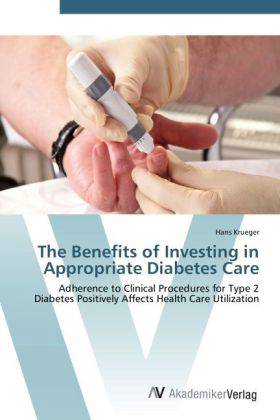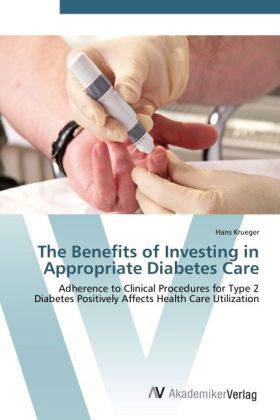
- Afhalen na 1 uur in een winkel met voorraad
- Gratis thuislevering in België vanaf € 30
- Ruim aanbod met 7 miljoen producten
- Afhalen na 1 uur in een winkel met voorraad
- Gratis thuislevering in België vanaf € 30
- Ruim aanbod met 7 miljoen producten
The Benefits of Investing in Appropriate Diabetes Care
Adherence to Clinical Procedures for Type 2 Diabetes Positively Affects Health Care Utilization
Hans Krueger
Paperback | Engels
€ 96,45
+ 192 punten
Omschrijving
Revision with unchanged content. Diabetes is a common and serious chronic condition. If not well-managed, significant multi-system complications often arise, resulting in increased health care utilization and poor health outcomes. There is considerable evidence that people with diagnosed diabetes are not receiving recommended care. This is the first study to examine the relationship between long-term adherence to recommended care and health care utilization. Patients with higher long-term adherence used an increased level of physician resources but a lower level of acute care resources. The utilization difference related to adherence was particularly noticeable in older adults with higher levels of morbidity, resulting in both less frequent hospitalizations and, when they were hospitalized, shorter lengths of stay in hospital. The findings of this study indicate that improving long-term adherence may result in the avoidance of $4 in acute care costs for every additional $1 spent on physician costs.
Specificaties
Betrokkenen
- Auteur(s):
- Uitgeverij:
Inhoud
- Aantal bladzijden:
- 372
- Taal:
- Engels
Eigenschappen
- Productcode (EAN):
- 9783639453607
- Verschijningsdatum:
- 20/08/2012
- Uitvoering:
- Paperback
- Formaat:
- Trade paperback (VS)
- Afmetingen:
- 152 mm x 229 mm
- Gewicht:
- 544 g

Alleen bij Standaard Boekhandel
+ 192 punten op je klantenkaart van Standaard Boekhandel
Beoordelingen
We publiceren alleen reviews die voldoen aan de voorwaarden voor reviews. Bekijk onze voorwaarden voor reviews.









